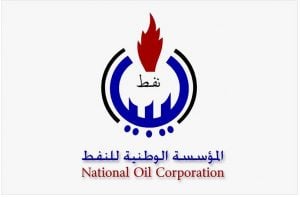By Sami Zaptia.

London, 20 September 2020:
Libya’s National Oil Corporation (NOC) announced yesterday the lifting of the status of force majeure for what it called safe oil fields and ports. It did not name the potential oilfields and ports.
The NOC stressed the importance of adhering to professional and non-political principles in any arrangements related to the lifting of force majeure from oil fields and ports. To this end, the NOC declared the following:
First, the lifting of force majeure at safe fields and ports; instructions have been given to the NOC’s operators in all sedimentary basins, as well as the competent departments of the NOC to carry out their duties and resume production and exports from safe fields and ports.
Secondly, the situation of force majeure continues in oil fields and ports which have confirmed presence of elements of the ‘‘Wagner gangs’’ and other armed groups that are obstructing the activities and operations of the NOC.
“Our main concern is to start production and exports taking into account the safety of workers and operations, as well as to prevent any attempts to politicize the national oil sector, which means that the NOC is doing its technical and non-political mission to resume operations in the safe areas and a technical evaluation is under way in preparation for the start of production and exports. ,” NOC chairman Mustafa Sanalla said.
The NOC also confirmed that it is committed to the highest international standards for the transparency of its trade operations, but issues relating to the management of Libyan finance and the budgeting process are political issues outside of its purview. It added that it will nevertheless, act with full transparency under the guidance of the executive authority (Serral-led government) on the disposal of new revenues.”
Analysis
Libya’s National Oil Corporation (NOC) has found itself in the eye of the country’s political storm as the western and eastern Libyan camps continue the tug-of-war using its rentier oil wealth. The NOC optimistically – or naively – insists Libya’s oil wealth should not be politicized. In a rentier state, where over 95 percent of the state budget is financed through hydrocarbon revenues – oil is politics and politics is oil.
The NOC had issued a statement on Friday (18 September) insisting it would not lift force majeure until ‘‘all armed groups in all guises leave all oil fields and ports, making them demilitarized zones, otherwise any other agreement would be fanciful’’. The stress here is on the words all.
Yet, having slept over the Maetig-Hafter proposal, yesterday, the NOC announced it was lifting force majeure on some ‘‘safe’’ oilfields and ports. It had insisted that it would make such decisions purely on technical, non-political criteria.
It must, therefore, be asked whether a political decision by the Serraj camp, the executive authority that the NOC seems to exclusively recognize, has, after some strategic reflection, taken a decision to exploit the Maetig-Hafter proposal. Unlike the NOC, upon reflection, it may have decided that not all the Maetig-Hafter proposal was a ”fanciful” proposal.
As it has been pointed out elsewhere, with the background of protests on the streets and subsequent political fallout for the Serraj camp and the whole country, the Serraj camp cannot afford to be seen as spoilers. The Libyan public wants some good news and want the hope that oil sales will resume, and revenues will start trickling through – to improve their miserable living conditions. Saying no to a proposal that might mean oil revenues can resume and may improve people’s living standards would be a political no no.
Hence, rather than react predictably with a knee-jerk reaction refusal of the Maetig-Hafter proposal, the Serraj camp may have decided to find holes in the deal.
They may have instructed the NOC to identify some oilfields and ports in which to lift force majeure – while sticking to their principle of refusing to resume operations where pro Hafter domestic and foreign forces/mercenaries still remain.
This solution makes the Serraj camp seem conciliatory, yet at the same time strong and principled. In this way, they may also succeed in side-lining Maetig again – limiting his role to a one-off proposal. The Serraj camp can now take the Maetig-Hafter deal and make it their own. They can pick the parts in it that they like and ignore those they find objectionable.
On another level, it must be recalled that there were demonstrations, burning of state property and shooting at protesters by government-recognized forces in eastern Libya too. Libyans in the east are feeling the pain from poor living conditions just as much as their brothers in the rest of the country. In other words, the east needs oil exports to resume just as much as the rest of Libya. Hence, the resumption of some oil exports and flow of revenues may suit both sides – while maintaining a hawkish political stance.
For Hafter, short of a full acceptance of his deal with Maetig, the resumption of partial oil production/exports, while maintaining some of his forces/mercenaries on the oilfields would also be a win. He would be seen as seeking a solution to the deadlock by his proposal with Maetig – while keeping his political stance.
Equally, while some commentators say the Maetig-Hafter proposal had resurrected Hafter’s political role, its is a conditional and maybe temporary resurrection. Hafter’s power and leverage on the oilfields and ports is a negative one. Hafter loses his potency once oilfields and ports are open and functioning. He only becomes negatively effective when he stops oil production and exports. More importantly, Hafter prefers the battle to be a military one. He made his name in his military action in Benghazi, Derna, and then sweeping east to south and west to the edge of Tripoli.
Ultimately, Hafter prefers to be on the battlefield. By engaging Hafter in political dialogue and the detailed negotiations over the Maetig-Hafter deal, Libyans are still engaging in politics rather than war. So, on one level, Hafter has been forced into abandoning the battlefield and returning to, and being confined to, the dialogue table. This, in itself, in today’s Libya, is some sort of success.
Maetig publishes details of ‘‘agreement’’ with Hafter for resumption of oil exports









